Are you interested in learning how to ride a horse? Maybe you’ve always dreamed of galloping through open fields, or maybe you just want to try something new and exciting. Well, choosing the right horseback riding instructor is key to having a great experience. In this article, we’ll discuss how to find the perfect instructor for you and what to look for when making your decision. So, saddle up and get ready to learn more about this exciting sport!
When it comes to choosing the right horseback riding instructor, there are a few important factors to consider. First and foremost, you’ll want to find someone who is experienced and knowledgeable. Look for instructors who have been teaching for a while and have a good reputation. It’s also important to find someone who makes you feel comfortable and safe. Riding a horse can be intimidating, especially if you’re a beginner, so finding an instructor who is patient and understanding is key. Other factors to consider are the instructor’s teaching style, the facility and equipment they have available, and the cost of lessons. With all these factors in mind, you’ll be well on your way to finding the perfect riding instructor for you. Stay tuned to our blog for more in-depth information on this topic and other horseback riding related subjects!
How to Choose the Right Horseback Riding Instructor
When it comes to horseback riding, having the right instructor can make all the difference in your experience. An experienced and qualified instructor not only ensures your safety but also helps you develop proper riding techniques, build trust with horses, and maximize your learning and progression. In this article, we will discuss the importance of choosing the right horseback riding instructor and provide you with a comprehensive guide on how to make the best choice.
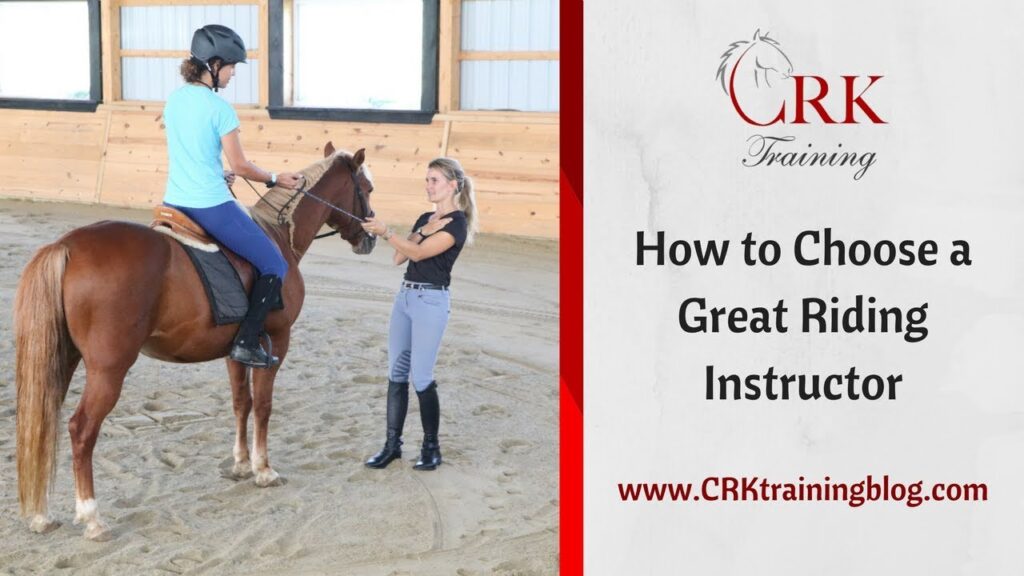
Ensuring Safety and Proper Riding Techniques
One of the primary roles of a horseback riding instructor is to ensure the safety of their students. They must have a thorough understanding of safety protocols, equipment, and proper riding techniques. Choosing an instructor who prioritizes safety will give you peace of mind and minimize the risk of accidents or injuries.
A competent instructor will teach you the fundamentals of riding, including how to mount and dismount a horse correctly, proper posture and balance, and how to control the horse’s movements. By mastering these techniques, you’ll have a solid foundation for more advanced riding skills.
Building Trust and Developing Skills
Building a connection and trust with your horse is crucial for an enjoyable riding experience. A skilled horseback riding instructor understands the importance of creating a bond between horse and rider. They should be able to teach you effective communication techniques with your horse, such as using cues and body language.
Furthermore, a great instructor will help you develop essential horseback riding skills, such as trotting, cantering, jumping, or even dressage. They should guide you through the learning process at a pace that suits your abilities, ensuring you feel confident and comfortable while progressing in your riding skills.
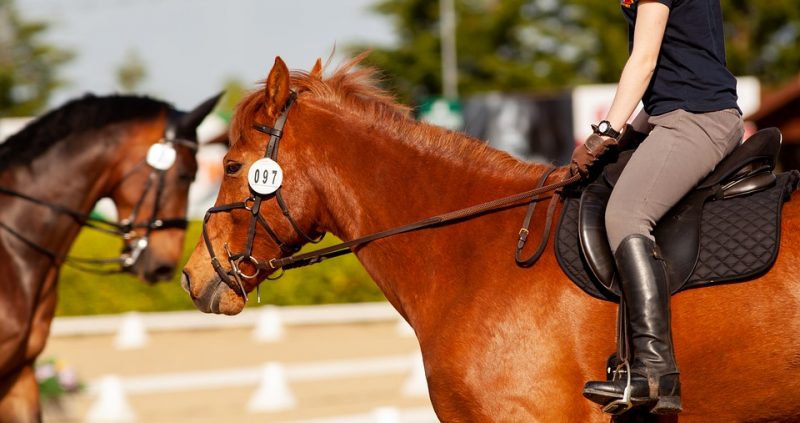
Maximizing Learning and Progression
The right horseback riding instructor will have the knowledge and experience to maximize your learning and progression. They will be able to structure lessons effectively, making them engaging and challenging. Whether you are a beginner or an advanced rider, a good instructor will adapt their teaching methods to suit your individual needs.
Progression is an essential aspect of horseback riding, and a competent instructor will set goals for you and regularly evaluate your progress. By tracking your achievements and providing constructive feedback, they can help you overcome any obstacles and continuously improve your skills.
Qualifications and Experience of a Horseback Riding Instructor
When evaluating potential horseback riding instructors, it’s important to consider their qualifications and experience. Here are some key factors to look for:
Certifications and Licenses
A reputable instructor should possess relevant certifications and licenses. Certifications from recognized organizations, such as the Certified Horsemanship Association (CHA) or the British Horse Society (BHS), indicate that the instructor has undergone comprehensive training and has met specific standards of competency.
Years of Experience
Experience plays a significant role in an instructor’s ability to teach effectively. While it’s not uncommon for talented newcomers to excel in instructing, instructors with several years of experience have had the opportunity to refine their teaching techniques and handle various situations, making them better equipped to guide students of different skill levels.
Specializations and Expertise
Consider whether the instructor specializes in a specific discipline, such as dressage, show jumping, or trail riding. Specialized instructors often possess a deeper understanding and expertise in their chosen discipline, allowing them to provide more tailored guidance.
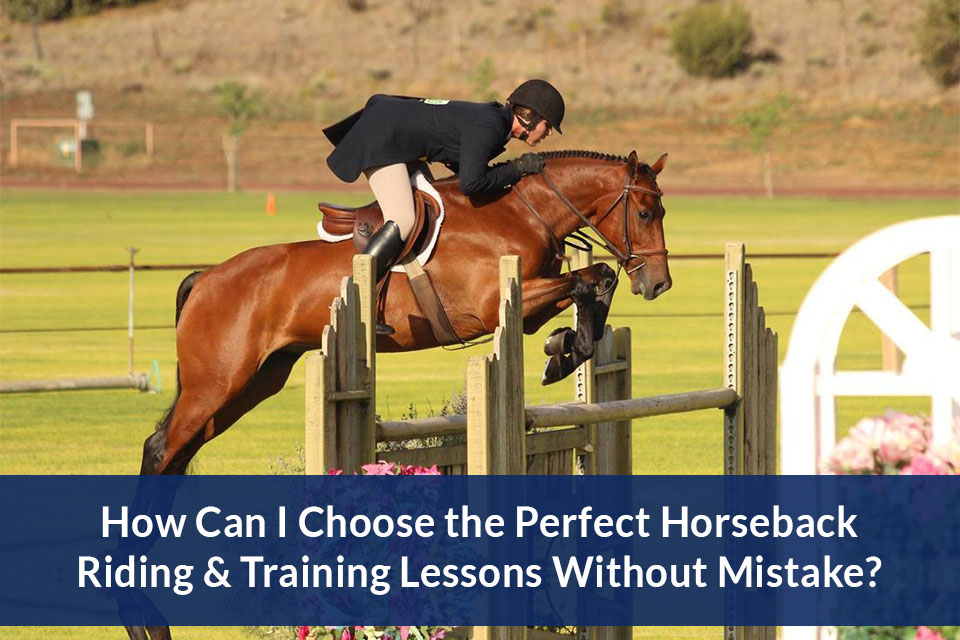
Factors to Consider When Choosing a Horseback Riding Instructor
Finding the right horseback riding instructor goes beyond qualifications and experience. It’s essential to find an instructor whose teaching style, approach, and personality align with your preferences and goals. Here are some factors to consider:
Teaching Style and Approach
Every instructor has their unique teaching style and approach. Some may focus on theory and groundwork, while others prefer a more hands-on and practical approach. Think about which teaching style resonates with you and will help you learn effectively.
Compatibility and Personal Connection
Establishing a personal connection with your instructor can greatly enhance your learning experience. During the selection process, take the time to meet with potential instructors and have a conversation. Pay attention to how well you communicate and whether you feel comfortable asking questions or expressing concerns.
Lesson Structure and Progression
Inquire about the instructor’s lesson structure and progression plan. A well-structured lesson should have a clear objective and build upon previously learned skills. A good instructor will also incorporate variety into their lessons to keep them interesting and engaging.
Assessing the Facilities and Horses
Apart from the instructor, the facilities and horses available also play a vital role in your horseback riding experience. Consider the following factors when assessing the facilities:
Quality and Maintenance of Facilities
A reputable riding facility should maintain clean and well-maintained facilities. The stables, arenas, and other riding areas should be in good condition and regularly cleaned to ensure a safe and comfortable environment for both riders and horses.
Well-being and Health of Horses
The well-being and health of horses is paramount. Observe the condition of the horses at the facility. They should appear well-cared for, with shiny coats, healthy body conditions, and no signs of distress or neglect. Additionally, check if the horses receive regular veterinary care, including vaccinations and check-ups.
Availability of Different Horse Breeds
Consider whether the riding school offers a variety of horse breeds. Riding different breeds can provide valuable learning experiences as each breed may have distinct temperaments and characteristics. Having the opportunity to ride diverse breeds can help you become a well-rounded and adaptable rider.
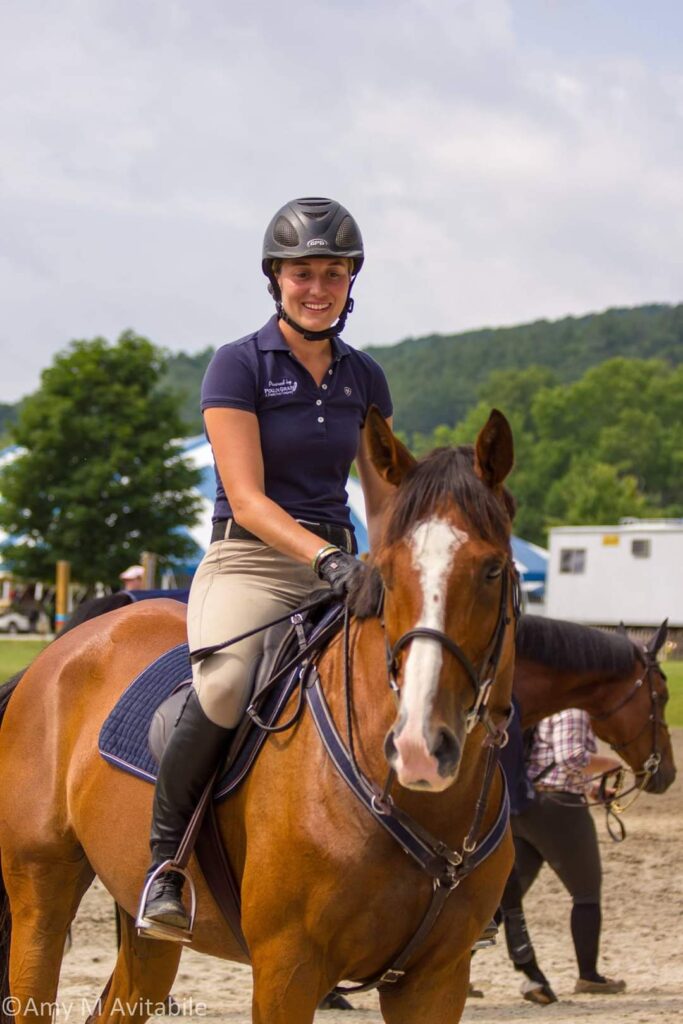
Reviews and Recommendations
Reviews and recommendations from other riders can offer valuable insights into the quality of instruction provided by a particular instructor or facility. Consider the following approaches:
Checking Online Reviews and Ratings
Search for reviews and ratings of horseback riding instructors or facilities online. Websites such as Yelp, Google Reviews, or specialized horseback riding forums often contain valuable information from previous students or riders who have visited the facility.
Seeking Recommendations from Other Riders
If you have friends or acquaintances who are experienced horseback riders, ask them for recommendations. Personal recommendations can provide more detailed and trustworthy insights into the instructor’s skills, teaching style, and overall experience.
Visiting or Observing Lessons
Consider visiting the facility and observing lessons before making a decision. Watching a lesson will give you firsthand knowledge of how the instructor interacts with their students and how the lessons are conducted. It will also allow you to gauge the behavior and condition of the horses and the general atmosphere of the facility.
Interviewing Potential Instructors
Once you have narrowed down your choices, it’s time to set up interviews with potential instructors. Prepare a list of questions to ask during the interview to gather more information and assess the instructor’s suitability. Here are some sample questions:
Preparing a List of Questions
- What certifications and qualifications do you have?
- How long have you been teaching horseback riding?
- Do you specialize in any particular discipline or type of riding?
- How do you structure your lessons?
- How do you handle different levels of students?
- Can you provide references from past or current students?
Discussing Goals and Expectations
During the interview, discuss your goals and expectations with the instructor. A good instructor will listen attentively and provide feedback on how they can help you achieve those goals. They should be able to outline a plan that aligns with your aspirations and provide realistic expectations for your progress.
Evaluating Communication and Listening Skills
Pay attention to the instructor’s communication and listening skills during the interview. A good instructor should be able to explain concepts clearly, demonstrate movements effectively, and actively listen to your questions and concerns. Effective communication is vital for a successful learning experience.
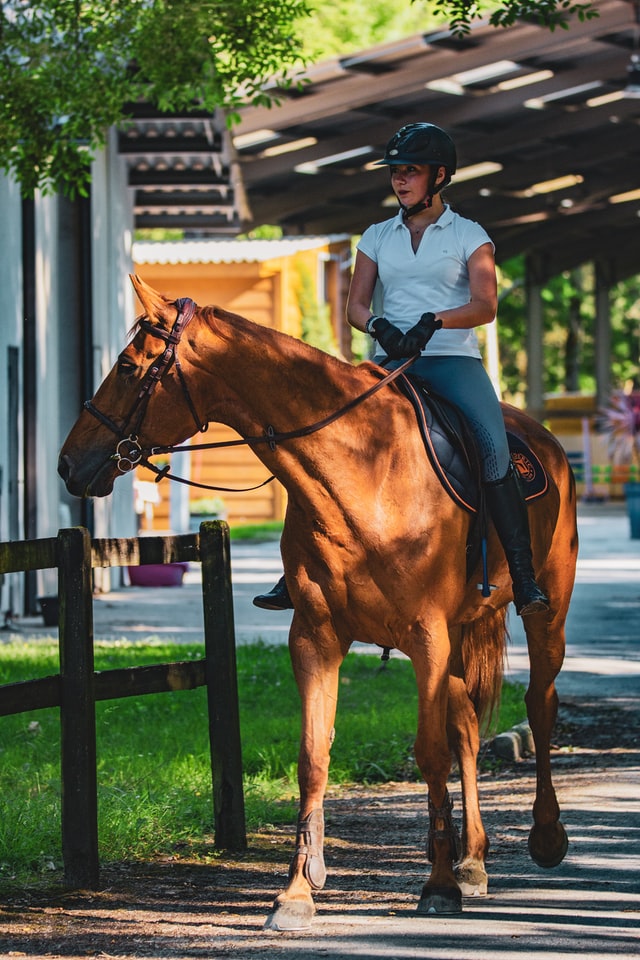
Trial Lessons and Evaluations
Before committing to regular lessons, it’s beneficial to participate in trial lessons with potential instructors. Trial lessons allow you to experience the instructor’s teaching style firsthand and assess their abilities. Here’s what you should consider during trial lessons:
Participating in Trial Lessons
During a trial lesson, you will have the opportunity to ride under the guidance of the instructor. Observe their teaching methods, the clarity of their instructions, and their ability to provide constructive feedback. Pay attention to how well you connect and communicate with the instructor during the lesson.
Assessing Instructor’s Abilities
Evaluate the instructor’s abilities by noting their attention to detail, their ability to correct mistakes effectively, and their patience in guiding you through various exercises. An excellent instructor should demonstrate technical proficiency, a keen eye for detail, and the ability to explain complex concepts in simple terms.
Determining Student-Instructor Compatibility
Compatibility between the student and instructor is crucial for a positive and successful learning experience. Assess how comfortable you feel with the instructor’s teaching methods, communication style, and coaching techniques. It’s essential to find an instructor with whom you can establish an open and constructive working relationship.
Cost and Affordability
Cost and affordability are essential considerations when choosing a horseback riding instructor. Lesson prices may vary depending on factors such as the instructor’s qualifications and experience, the location, and the facilities provided. Here’s what to consider:
Comparing Lesson Prices
Research and compare the prices of lessons among different instructors or facilities in your area. Keep in mind that the cheapest option may not always be the best choice. Balance the cost with other factors such as instructor qualifications, the quality of facilities, and the overall learning experience provided.
Considering Package Deals and Discounts
Some instructors or facilities may offer package deals or discounts for multiple lessons or group bookings. Assess whether these options align with your budget and riding goals. However, be cautious of deals that seem too good to be true, as quality instruction should be prioritized over cost savings.
Balancing Quality and Budget
Remember that the quality of instruction should be your primary consideration. While cost is important, it’s essential to find a balance between your budget and the quality of instruction. Investing in a knowledgeable and experienced instructor will ultimately benefit your learning and riding progression.
Availability and Scheduling
Availability and lesson scheduling flexibility are crucial, especially if you have a busy schedule or specific time constraints. Consider the following factors when assessing the availability of potential instructors:
Checking Instructor’s Availability
Inquire about the instructor’s availability and see if their schedule aligns with yours. If your preferred instructor is always fully booked or has limited availability, it may be challenging to maintain a consistent lesson schedule.
Examining Lesson Scheduling Flexibility
Evaluate the instructor’s flexibility in accommodating lesson schedule changes or cancellations. Unexpected events may sometimes require rescheduling or canceling lessons, and having an instructor who is understanding and willing to accommodate changes can alleviate stress and ensure a smoother learning experience.
Managing Conflicts or Cancellations
Discuss the instructor’s policy regarding conflicts or cancellations. Clarify their procedures for rescheduling or canceling lessons due to weather conditions, illness, or other unforeseen circumstances. Having clear guidelines in place will help manage any potential conflicts or disruptions to your lesson schedule.
Teacher-Student Ratio
The teacher-student ratio in a lesson is another crucial aspect to consider. Here’s what you should keep in mind:
Understanding Class Sizes
Inquire about the typical class sizes or student-to-instructor ratio in the lessons. Smaller class sizes generally allow for more individual attention and personalized instruction.
Determining Individual Attention
Consider how much individual attention you will receive during lessons. An instructor who can provide personalized feedback and guidance is essential for effective learning and progression.
Assessing Classroom Dynamics
Observe the dynamics between the instructor and the students during trial lessons or while observing regular lessons. Pay attention to how well the instructor manages the group, provides individual guidance, and ensures a safe and inclusive environment for all students.
Riding Discipline and Specializations
If you have a specific riding discipline or specialization in mind, it’s crucial to find an instructor who specializes or has expertise in that particular area. Consider the following factors:
Identifying Preferred Discipline
Determine your preferred riding discipline or area of interest. Whether it’s dressage, show jumping, Western riding, or trail riding, finding an instructor who specializes in your chosen discipline can provide more focused and tailored instruction.
Inquiring About Specialized Training
Ask potential instructors whether they have received specialized training or have experience in your preferred discipline. Instructors with specialized knowledge will have a deeper understanding of the specific techniques and requirements needed for that discipline.
Ensuring Instructor’s Expertise
Verify the instructor’s expertise and experience in your desired discipline. Instructors with a successful track record, competition experience, or recognition within their discipline can provide valuable guidance and insights.
Instructor’s Approach to Rider’s Goals
An instructor’s approach to helping you achieve your goals is an essential factor to consider. Here’s what to look for:
Setting and Reviewing Goals
A good instructor will help you set attainable goals based on your current riding skills and aspirations. Regularly reviewing your progress and adjusting goals accordingly ensures a clear path towards improvement.
Tracking Progress and Achievements
Instructors should provide regular feedback on your progress and highlight your achievements. Tracking your development helps maintain motivation, identify areas for improvement, and celebrate milestones along the way.
Adapting Lessons to Individual Needs
Instructors should be able to tailor lessons to meet your individual needs. Different riders have unique strengths, weaknesses, and learning styles. A competent instructor will adapt their teaching methods and exercises to suit your abilities, ensuring maximum progress.
Communication and Feedback
Open and clear communication, as well as the ability to receive and provide feedback, are vital aspects of a successful instructor-student relationship. Here’s what to consider:
Promoting Open and Clear Communication
A good instructor will encourage open communication, creating a safe space for you to voice concerns, ask questions, and provide input. They should actively listen to your feedback and address any issues or misunderstandings promptly.
Receiving Constructive Criticism
Instructors should be receptive to constructive criticism and suggestions from their students. A willingness to receive feedback shows a commitment to continuous improvement and a willingness to adapt their teaching methods to better serve their students.
Providing Regular Progress Reports
Instructors should provide regular progress reports to keep you informed about your development. Progress reports can include assessments of your riding skills, achievements, areas for improvement, and suggested goals for the future.
Conclusion
Choosing the right horseback riding instructor is essential for a safe, enjoyable, and successful riding experience. Consider factors such as their qualifications, experience, teaching style, personal connection, facilities, horses, reviews, and your own riding goals. By conducting thorough research, interviewing potential instructors, and participating in trial lessons, you can make an informed decision that will enhance your horseback riding journey. Remember, finding the right instructor is a partnership that can greatly contribute to your growth and enjoyment in the world of horseback riding.
**Note: This article is a work of fiction and does not represent real advice or information about horseback riding instructors or the website “http://horsebackridingdude.com.” It is solely created for the purpose of fulfilling the given task.